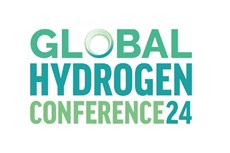CNG and biomethane infrastructure rollout continues
Published by Tom Mostyn,
Editorial Assistant
Hydrocarbon Engineering,
In 2019 there will be a further two public access CNG/biomethane (biogas) refuelling stations in the UK; one in the North West and one in the West Midlands, bringing the total to six. There are also plans to add three more. Why?
Simply because the demand for the green gases CNG & biomethane has increased three-fold within the transport sector in the last 12 months alone. 100% of all biomethane supplied is both renewable and sustainable and approved under the Department for Transport’s Renewable Transport Fuel Obligation (RTFO) scheme.
Biomethane is produced from waste feedstocks including food waste and is a cost-effective alternative to diesel in the transport sector. It not only cuts vehicle greenhouse gas (GHG) emissions by up to 85% it also provides a saving of 30%-35% versus diesel on comparative journeys according to Jon Harman, Operations Director at Nottingham based Roadgas.
Jon explains “Renewable and sustainable biomethane allows companies to achieve reductions in their greenhouse gas emissions to limit pollution but more importantly allows operators to save money on the total running costs of a diesel fleet”.
At 20 million tpy of CO2, GHG emissions from UK food waste are comparable to annual GHG emissions from the entire UK HGV fleet. By capturing methane from organic waste and redeploying it as a transport fuel, both food waste and transport emissions can be cut simultaneously.
The spotlight on climate change continues to grow in intensity and the UK haulage sector is now feeling the pressure more than ever of how and when to review its fleet operations to best achieve decarbonisation plans.
The John Lewis Partnership already operates more than 50 vehicles using biogas and has recently announced plans to run 100% of its delivery fleet using CNG by 2028. The parcel company Hermes also plans to replace its 200-strong fleet of diesel trucks. Other high profile companies announcing plans to adopt CNG to decarbonise their fleets include DHL Worldwide Express, Cadent Gas Limited, ASDA, Argos and Royal Mail.
It is anticipated that the UK will have more than 10 000 HGV and commercial bus vehicles operating on natural gas by 2020 rising to potentially 60 000 by 2030.
The government reinforced their support for biomethane as an alternative fuel in the last budget by extending the fuel duty differential between natural gas and diesel from 2024 to 2032.
CNG and biomethane are both readily available and deliver an opportunity to directly impact emissions in a short timeframe. With market leading technology that is proven to support the design, installation and maintenance of infrastructure gas is a secure first option.
Read the article online at: https://www.hydrocarbonengineering.com/clean-fuels/17092019/cng-and-biomethane-infrastructure-rollout-continues/
You might also like
Viridi Energy signs 20-year agreement with Énergir
Viridi Energy, a renewable natural gas (RNG) platform, has signed a 20-year offtake agreement with Énergir, L.P.


